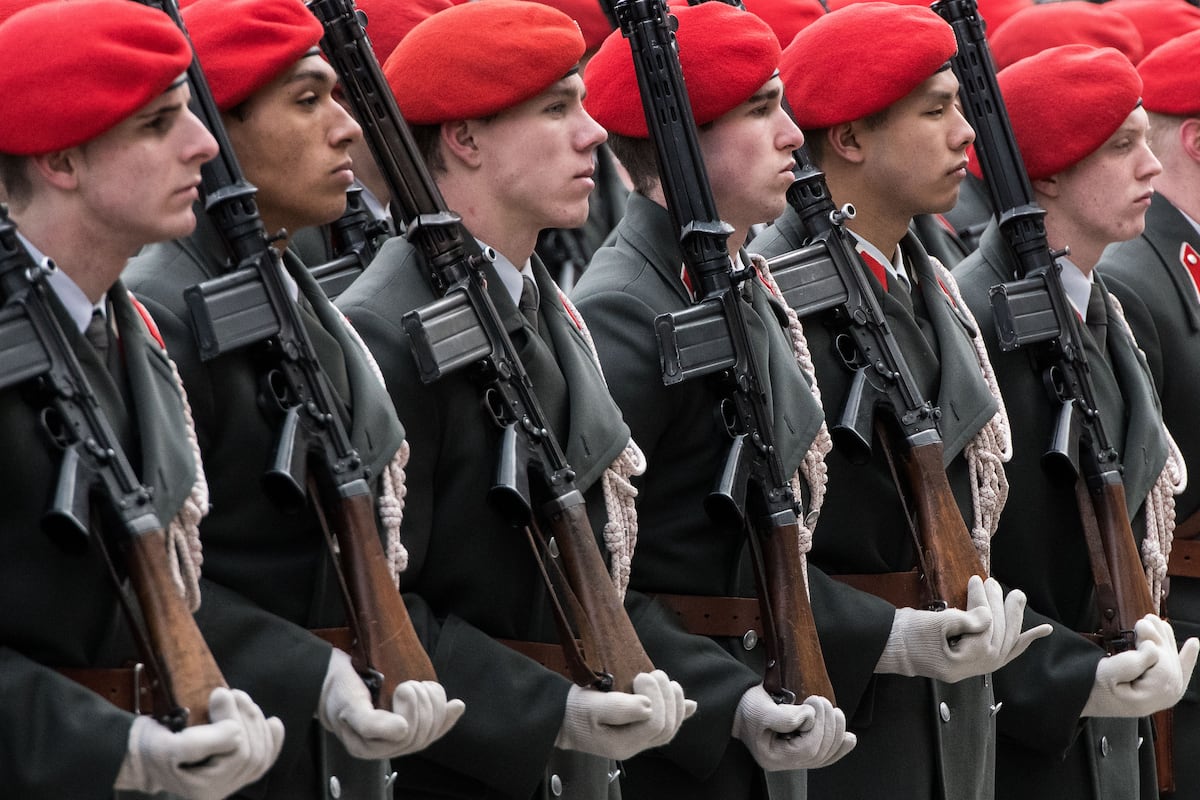THE HAGUE, Netherlands — Key political figures in historically neutral Austria have reignited a debate about the country’s future relationship with NATO and whether Vienna might be better off joining the alliance.
The renewed public debate follows comments made by the country’s foreign minister, Beate Meinl-Reisinger, to the German newspaper Die Welt am Sonntag.
“There is currently no majority in parliament or among the population in favor of joining NATO,” Meinl-Reisinger said, “but such a debate could still be very productive.” She noted that “neutrality alone does not protect us.”
The comments sparked fierce outrage from parts of the political spectrum in Vienna. Gallup polling from last year – two years into Russia’s invasion of Ukraine – showed that less than a quarter of Austrians were in favor of joining NATO, while 74% supported maintaining the country’s “everlasting neutrality,” which has been enshrined in the country’s constitution since its independence from Allied occupation forces in 1955.
Especially the extreme-right Austrian Freedom Party, which has close ties to Russia and President Vladimir Putin personally, clapped back hard, saying in an urgent parliamentary inquiry that Meinl-Reisinger was acting “as an extended arm of the Brussels armaments agenda.” Members of the Freedom Party have been critical of European defense integration and of the Western effort to support Ukraine in its fight against the full-scale Russian invasion.
Amid an unprecedented budget crunch and drastic spending cuts in Vienna, defense spending continues to increase year over year.
Meinl-Reisinger, now serving as Austria’s foreign minister, is also the head of one of the three parties making up the ruling coalition in Vienna. Her economic-liberal NEOS party stands out from its coalition partners, the conservative People’s Party and the Social Democrats, for having a much warmer stance on NATO and advocating for a joint European army.
NEOS has also repeatedly urged discussions about the modern-day relevance of Austria’s “everlasting” neutrality, which was implemented at least in part at Soviet urging during the early Cold War. Other parties have shied away from this political hot topic.
A small country like Austria can only defend its interests in a “common and strong Europe,” Meinl-Reisinger told assembled parliamentarians in defense of her foreign policy.
Austria, which is already covered by the EU’s mutual defense clause – a point that Meinl-Reisinger is quick to point out – is part of a vanishing breed in the European Union. Only a handful of EU countries still maintain neutrality, and of them, Austria, with its population of 9 million, is the largest. Finland and Sweden, longtime neutral countries that maintained this policy throughout the entirety of the Cold War, famously dropped it to join NATO in 2023 and 2024, respectively.
In addition to its EU membership, which some view as limiting the country’s neutrality, Austria is also a member of NATO’s Partnership for Peace initiative, coordinating and training alongside the alliance. It also serves as a key transit country for NATO, with more than 3,000 military transports and over 5,000 NATO overflights taking place in 2024.
Time and again, there are public protests for maintaining the country’s neutrality and steering well clear of NATO. A “large demonstration” in Vienna has been announced for October. Many of these protests also criticize Western support for Ukraine.
“It’s not that I want to join NATO with open arms,” Meinl-Reisinger said in the interview with Die Welt am Sonntag. “But we can’t sit back and believe that no one will harm us if we don’t hurt anyone. That would be naive. The world has changed.”
Linus Höller is Defense News’ Europe correspondent and OSINT investigator. He reports on the arms deals, sanctions, and geopolitics shaping Europe and the world. He holds a master’s degrees in WMD nonproliferation, terrorism studies, and international relations, and works in four languages: English, German, Russian, and Spanish.
